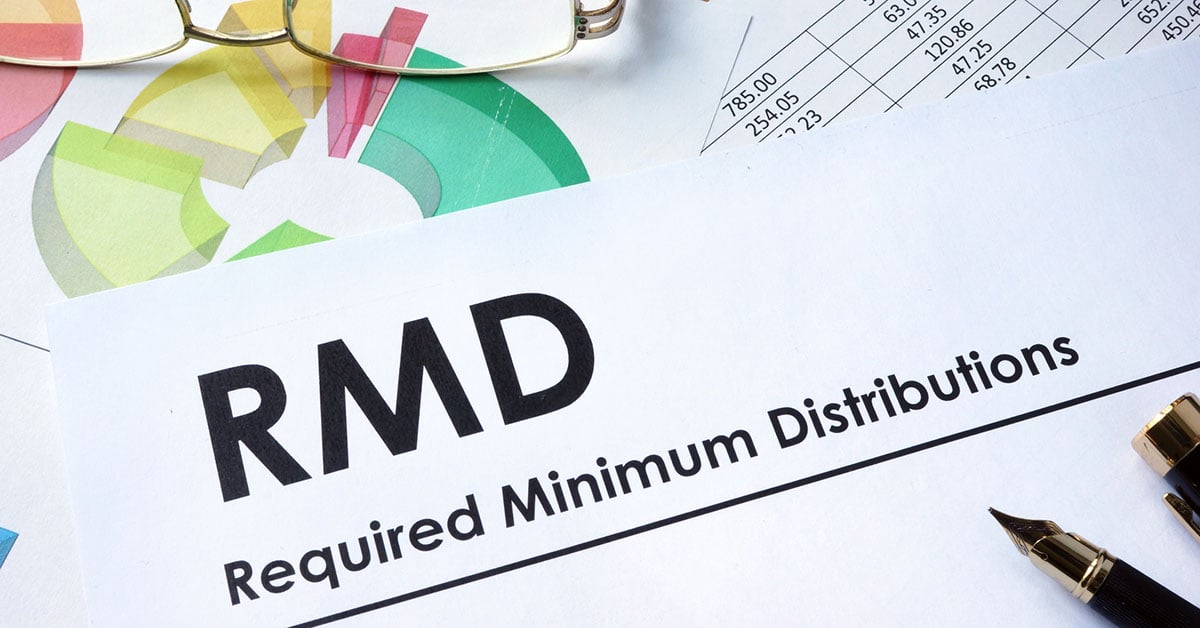3 Questions to Find the Right Accounting Partner for Your Construction Business
This article was originally written in October 2020. It has been updated with new references and information.
2 min read
 Jon Fortin, J.D.
:
November 8, 2022
Jon Fortin, J.D.
:
November 8, 2022

November 8, 2022 - The Department of the Treasury (Treasury Department) and the Internal Revenue Service (IRS) intend to issue final regulations related to required minimum distributions (RMDs) for inherited qualified benefit plans that will apply to the 2023 distribution calendar year.
When the Setting Every Community Up for Retirement Enhancement (SECURE) Act was signed into law in December of 2019 and became effective January 2020, it included many new provisions and changes for employers and individuals regarding qualified benefit plans. The provisions were designed to help businesses offer retirement plans for their employees and for individuals to save for their own retirement.
For individuals specifically, the Secure Act allowed for expanded plan eligibility for part-time employees and penalty-free withdrawal for childbirth or adoption. However, the SECURE Act also eliminated the “stretch” IRA that allowed taxpayers to defer taxable income distributions from inherited IRAs.
As part of the revenue provisions of the SECURE Act, changes were made to the required minimum distributions (RMDs) for designated IRA beneficiaries. Prior to the Secure Act, beneficiaries could “stretch” the RMDs over their life expectancy. Younger beneficiaries were able to spread the RMDs and related income tax liability over a much longer time period allowing for longer periods of tax deferred growth.
The SECURE Act eliminated the ability of most beneficiaries to stretch distributions over their lifetime by requiring the entire tax-deferred account be distributed within 10 years of the account owner’s death.
What This Means for You and Steps You Need to Take Now
Initially, many advisors understood the language of the SECURE Act to set forth that the inherited IRA balance would need to be fully distributed within 10 years of the account owner’s death, but annual RMDs were not necessary (operating much like the “5 year rule”).
On October 7, 2022, the Treasury Department and IRS issued Notice 2022-53 stating they will issue final regulations for RMDs under the Secure Act that are to apply no earlier than the 2023 distribution year.
Contrary to earlier interpretations, the notice states beneficiaries are required to take RMD’s from an inherited IRA, and should have taken distributions in 2021 and 2022 where the employee or IRA owner passed away in 2020 or 2021.
The notice provides relief for those who did NOT take annual distributions in 2020 and 2021, waiving the 50% excise tax that would normally apply. In addition, if a taxpayer has already paid the excise tax for a missed RMD, the taxpayer may request a refund. Taxpayers will be required to start taking annual distributions in the next calendar year.
For affected designated beneficiaries that have not yet taken an RMD for 2022, the deadline to take the distribution is December 31st, 2022 for the 2022 calendar year. It is important to note that RMD’s may impact taxable income for the 2022 tax year. Your tax advisor should analyze your tax position and may suggest increased withholding or estimated tax payments in order to cover the additional taxes due for the 2022 tax year.
Questions?
If you have any questions or concerns regarding this Treasury Department and IRS notice, please reach out to Jon Fortin, partner and Estate, Gift, and Trust Practice Leader, via our Contact Us form.

This article was originally written in October 2020. It has been updated with new references and information.

Editor's note: this blog was updated in 2025 with additional resources for business owners.

In a significant shift on Friday, March 21, the Financial Crimes Enforcement Network(FinCEN) has revised its Beneficial Ownership Information (BOI)...